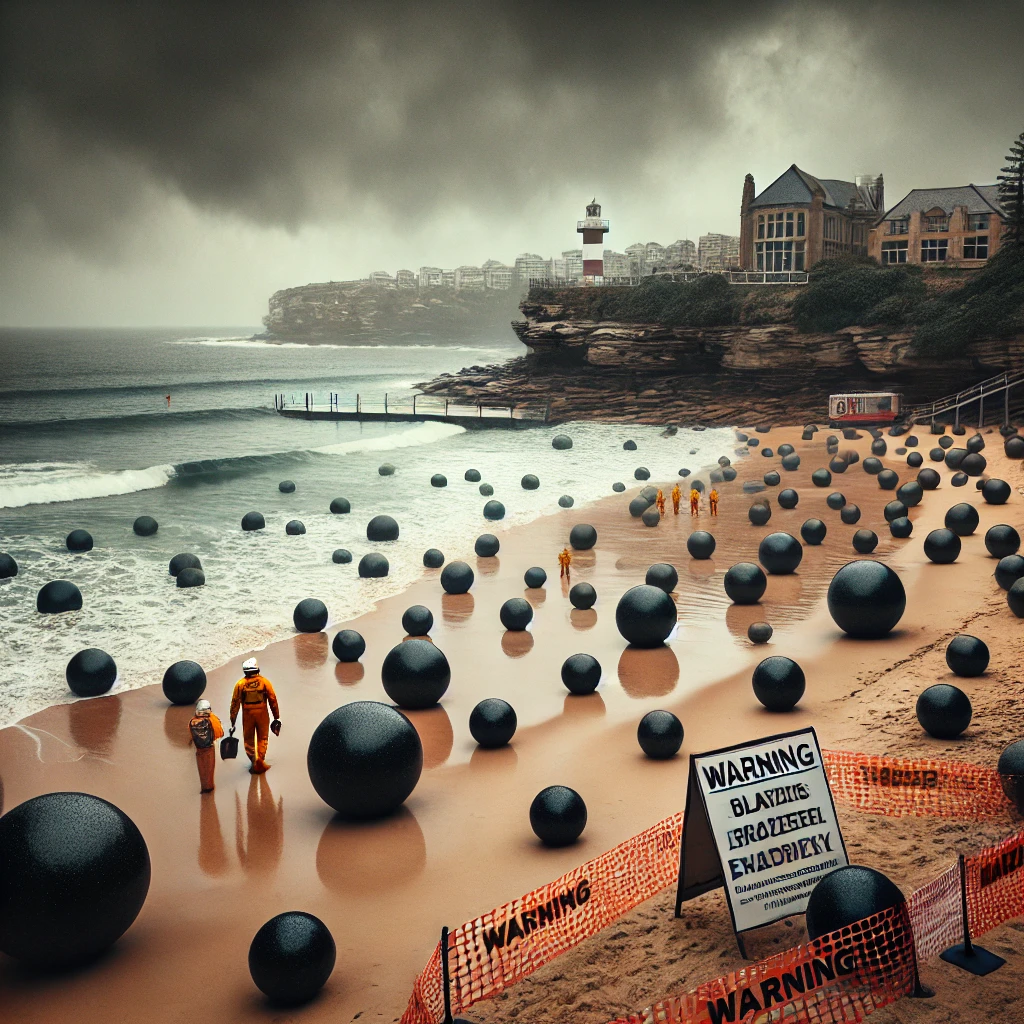Coogee Beach, located in the Randwick suburb of Sydney, has been shut down following the sudden appearance of hundreds of mysterious black balls on the shore. Authorities are scrambling to identify the origin of these strange objects, which have prompted safety concerns for both the public and the environment.
Sydney Beach Closure Due to Unidentified Black Objects
On 15 October, the Randwick City Council made the decision to temporarily close Coogee Beach after lifeguards discovered unusual black spheres scattered across the sand. The council has issued a statement warning residents and visitors to stay away from these objects and avoid contact until further notice. Although no injuries have been reported, officials are treating the situation with caution.
Randwick’s environmental officers have swiftly collected samples of the debris for testing. These tests aim to uncover whether the black spheres are hazardous or merely a natural phenomenon. Until the results are confirmed, Coogee Beach, as well as several other nearby beaches, will remain closed as a precautionary measure.
Potential Environmental Hazard
While the exact nature of the objects is still unknown, experts speculate that they could be tar balls. These are formed when oil interacts with seawater, often after an oil spill. Tar balls are typically the remnants of weathered oil that have solidified and washed ashore. They can pose significant risks to both marine life and humans due to their toxic properties.
This theory has not yet been confirmed, but environmental officials are taking the possibility seriously. If the black objects are indeed tar balls, they could signal a larger issue of marine pollution that requires immediate attention. Local authorities are coordinating with environmental agencies to determine the best course of action.
Public Safety Measures
The sudden appearance of these objects has led to increased public concern. Lifeguards and environmental officers have been stationed at the affected beaches to ensure that people adhere to safety protocols. In a public statement, the Randwick City Council urged beachgoers to avoid approaching the black balls under any circumstances, as their contents could be dangerous.
Nearby beaches have also been closed until further inspections can confirm their safety. This incident highlights the ongoing challenges coastal cities face in managing both natural and man-made environmental threats.
Impact on Local Community
The closure of Coogee Beach is particularly significant as it is one of Sydney’s most popular beaches, attracting both tourists and locals year-round. With its sudden closure, local businesses reliant on beach tourism are expected to experience a downturn. Cafés, restaurants, and shops in the area have already reported a noticeable drop in foot traffic since the announcement. The council, however, emphasises that public safety must remain the top priority.
In the meantime, the local community is being kept informed through regular updates from the council, with hopes that the closure will be temporary. However, much depends on the outcome of the environmental testing currently underway.
Broader Environmental Implications
If the black balls are indeed found to be tar balls, this could have far-reaching implications beyond Sydney’s beaches. The presence of tar balls is often linked to oil spills, and such an event could have devastating effects on marine ecosystems and local biodiversity. Environmental activists are already raising concerns about the potential long-term damage to wildlife and the coastal environment.
Efforts are now underway to ensure that the area is thoroughly cleaned and that any potential hazards are neutralised. For the moment, Sydney’s beaches will remain closed as authorities continue their investigations into the cause of this strange phenomenon.






